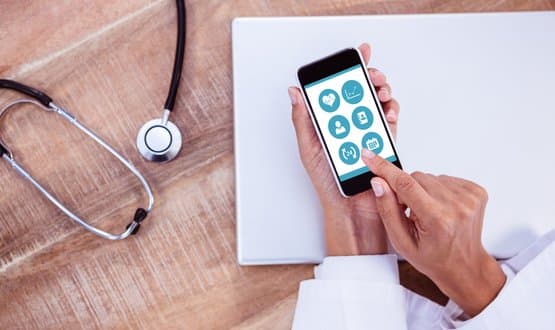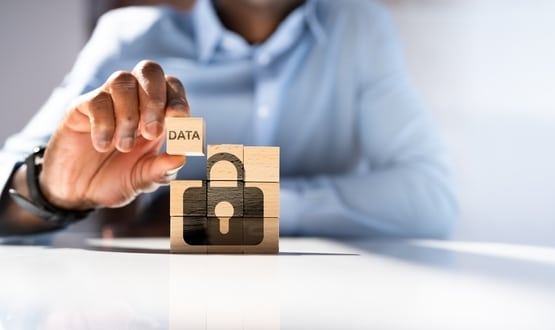Whatsapp doc with instant messaging?

Instant messaging platforms, particularly Whatsapp, are widely used by doctors and clinical teams for quick and easy communications, but they are not compliant with NHS information governance requirements, argues Dr Felix Jackson founder of clinical messaging app medCrowd.
When I trained as a medical student in London, South Africa, and China, and finally became an anaesthetist in Plymouth – I was constantly impressed by how health and care teams would work together.
But along the way, I noticed that there was a yawning gulf between the world-class calibre of these highly trained specialists, often operating in dramatically urgent circumstances, and the technology available to assist them in collaborating with colleagues effectively and compliantly.
As the technology has progressed exponentially in recent years, this gap has only widened.
WhatsApp end-to-end encryption not enough
Though apps like WhatsApp and similar technologies boast of end-to-end encryption, this doesn’t mean much outside of cyberspace and in the real world.
Messages can too easily be sent to the wrong contacts; people can pick up unlocked devices – or even bypass your passwords. When you’re dealing with confidential medical information, these are all circumstances that could result in a serious data breach.
This is a huge problem for the NHS. By January this year the ICO had reported more than 1330 data security incidents since its inception in April 2015, these breaches appear to be on the rise – costing the NHS countless money in fines and putting patient confidentiality at risk.
Convenience doesn’t always square with confidentiality
Convenient though they may be, such apps cannot offer peace of mind when it comes to confidential health information, accountability, or verification. Unregulated and unaccountable, these services are ultimately designed for contact between friends, and are not the kind of place where potentially life-and-death discussions between health and care workers should be taking place.
Guidance from the NHS could not be clearer: ‘whatever the other merits of WhatsApp, it should never be used for the sending of information in the professional healthcare environment’. Yet according to BMJ Innovation, in 2015 alone, over a third of doctors were using apps like WhatsApp to discuss clinical information about patients at work. A figure that has almost certainly increased since 2015.
So why is this happening? Well, the answer is obvious: health and care workers need an efficient way to work together simply and effectively, at a pace that matches the rest of the world. These technologies have proved invaluable at bringing the professions together during times of crisis – just as they did last year during the Croydon tram disaster.
Teams want communications tools
In a recent BMJ Innovations study of junior doctors by Dr Georgina Gould and Dr Ramin Nilforooshan, it was demonstrated that 80% of respondents felt that these technologies improved their team relationships and broke down traditional hierarchies, making overall communication more effective. So why aren’t we providing them with an opportunity to do so compliantly?
It is unreasonable that our world-class NHS teams should be expected to languish in the dark ages, while the rest of our lives become increasingly technologically sophisticated. In healthcare delays really can cost lives.
Unfair to ask health and care professionals to gamble
But health and care workers are faced with a dilemma: use out-of-date, inefficient technologies, or gamble with modern, non-compliant alternatives in the knowledge that they are responsible for any breach in confidential patient information.
The situation is a disaster waiting to happen, at a time when the NHS is under greater pressure than ever. At best, refusal to address this issue will cost money and time; at worst, it could cost patients their lives. It’s frankly ludicrous that doctors are left using pagers and fax machines for formal communication – technologies that went out of date more than a decade ago following the widespread adoption of internet-enabled mobile phones.
Progress on technology guidance compliance is being made
Enormous progress has been made to support the approval and adoption of technology already. For example, the Information Governance Toolkit, the Innovation and Technology tariff, Clinical Entrepreneur program, MHRA’s mobile medical app guidance, NHS Digital’s information standards, the medical terminologies (e.g. SNOMED-CT and ICD-10) and NHS Digital’s mobile app guidance (expected in 2017). But more needs to be done.
Bringing the health and care sector into the modern world is going to be no mean feat. Health and care workers need to be given time and space to innovate. Fortunately, there are organisations and initiatives out there trying to bridge this gap – organisations like the Health Foundry and DigitalHealth.London.
The DigitalHealth.London Accelerator Programme has been the starting block for many innovative tech companies – including my own, medCrowd, which I hope will go some way to solving the issues in compliant communication in the NHS.
Guidance needs to be backed by solutions
It’s not enough to identify a problem and issue guidance without working to find solutions. Policymakers need to recognise that there is an urgent need for health and care workers to communicate quickly and compliantly, and if they don’t provide them with the means for doing so, they have no choice but to turn to consumer apps, putting all of our private health information at an unacceptable risk.

Dr Felix Jackson is a doctor and entrepreneur, specialising in compliance. Felix trained as an anaesthetist in the UK gaining MRCP with the Royal College of Anaesthetists. He left clinical practice to start working in digital health, founding medCrowd.





3 Comments
And the original secure messaging and workflow app for the NHS and used in by tens of thousands of clinicians across the UK http://www.careflowconnect.com
http://www.cupris.com also have an interesting app that provides secure instant messaging and a few other nice features across the local health economy – my GP federation is thinking of trying/testing it.
PatientView also offers secure messaging between staff, and directly with patients. http://www.patientview.org
Comments are closed.